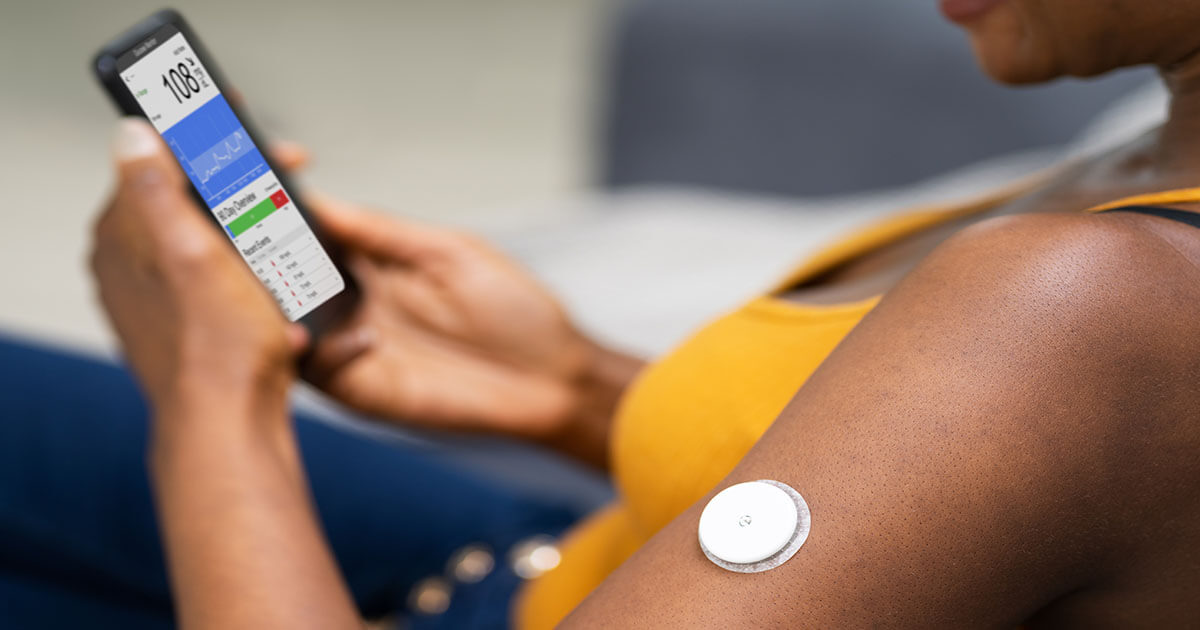DEPICTED
DEPICTED (Development and Evaluation of a Psychosocial Intervention for Children and Teenagers Experiencing Diabetes), led by Professor John Gregory and Dr Mike Robling of Cardiff University, was a 5-year study completed in May 2010. The trial evaluated a training programme for healthcare professionals working in diabetes services for children to help them communicate more skilfully with their patients, particularly on issues requiring behavioural change. It incorporated communication skills training with a focus on the “guiding style” and included an agenda-setting tool for children with diabetes aged 4–15 years.
The effectiveness of the intervention was tested over a 1-year period in 26 clinics with outcomes measured in 693 children. The training did not improve HbA1c levels in the children, although minor improvements in quality of life were observed in their parents. In summary, communication skills training of healthcare professionals does not appear to lead to the same benefits in children with diabetes that have been observed where highly trained psychologists use techniques such as motivational interviewing.
FACTS 2
FACTS 2 (Families, Adolescents and Children’s Teamwork Study 2) was led by Dr Helen Murphy and the Ipswich Paediatric Diabetes Team with 300 adolescents in 10 centres across the UK. It was aimed at children with diabetes aged 11–16 years who attended six sessions of 60–90 minutes in duration. Their parents were actively encouraged to participate. The course focused on family cohesion, functioning and diabetes skills training, whilst also considering issues such as adolescent development, communication and conflict resolution.
The results showed no effects on family communication nor average glycaemic control. There were some improvements in diabetes self-management skills, as participants were more likely to adjust their pre-meal insulin boluses, but adolescent compliance with daily self-management tasks was suboptimal. The authors speculate that more intensive training programmes, starting sooner after diagnosis, may be required and that more skilled behavioural change experts, including social scientists and health psychologists, may be needed for complex family-centred interventions.
CHOICE
CHOICE (Carbohydrate, Insulin Collaborative Education), led by Dr David Chaney, is an education programme for children and young people with type 1 diabetes. A multicentre randomised controlled trial was conducted with 138 adolescents recruited from seven hospitals within Northern Ireland. Outcome measures included glycaemic control, perceived quality of life, perceived empowerment and self-management strategies of participants at 1, 3, 6, 12 and 24 months post intervention. Although there was no difference in HbA1c levels, the programme reduced the impact of diabetes on quality of life and increased dietary freedom and adherence. However, these effects reduced over time suggesting that further support post-education is needed. Numeracy and literacy were also identified as key issues that need to be considered in future work.
CASCADE
CASCADE (Child and Adolescent Structured Competencies Approach to Diabetes Education) is a structured intensive education programme using psychological approaches that maximise engagement, motivation and long-term change. A large, multicentre, cluster-randomised controlled trial to investigate the effectiveness of CASCADE will end in December 2012. The programme was specifically designed to improve glycaemic control, self-management and quality of life in children and young people with diabetes.
CASCADE is delivered to young people aged 8–16 years and their families over four monthly sessions in groups of three to four families. The programme focuses on increasing competency in the self-management of diabetes. The primary outcome of the trial will include changes in HbA1c levels from baseline, 1 and 2 years post-recruitment. Secondary outcomes will include hospital admissions, hypoglycaemic episodes, self-efficacy, diabetes-specific quality of life measures, family functioning and measures of emotional and behavioural adjustment, 1 and 2 years post-recruitment.
DECIDE
DECIDE (Delivering Early Care in Diabetes Evaluation) is a randomised controlled trial, led by Dr Lesley Lowes and Professor John Gregory, assessing hospital versus home management in children with newly diagnosed diabetes, comparing psychological, social, physical and economic outcomes. A total of 203 children aged 0–17 years and their parents or carers were randomly assigned to either hospital or home management. Data are being collected for 2 years post-diagnosis, with follow-up appointments at 3, 12 and 24 months, and every 3–4 months at routine clinic visits. The primary outcome of the trial will be changes in HbA1c levels from baseline to 2 years post-diagnosis. Secondary outcome measures include the length of stay, growth, adverse events, quality of life, knowledge of diabetes, self-care activity, satisfaction and time off school or work. Total health service costs will be evaluated. Experiences of both approaches to care will be explored qualitatively with healthcare professionals and a subgroup of 30 participants. Findings from DECIDE should provide evidence to inform practice and national guidelines. Results will be reported in early 2014.
KICk-OFF
KICk-OFF (Kids in Control of Food) is a structured education course for children and young people aged 11–16 years with type 1 diabetes on a multiple-dose insulin regimen. It was developed by Dr Kath Price and Julie Knowles, Sheffield Children’s Hospital, with input from children, families and the education profession. It is delivered over 5 days to groups of eight children and young people. It follows a modular approach to building skills and knowledge throughout the week. It involves interactive and practical approaches to teaching, meeting the varied learning styles of the children and young people.
A specific teaching skills course for educators was developed to provide an understanding of the way in which children and young people learn. Behaviour management, motivation and assessment of learning are key components of this course. KICk-OFF is currently being tested in a cluster-randomised trial involving 486 children and young people across the UK. Thirty one KICk-OFF courses have been delivered. The primary outcome measures are changes in HbA1c and quality of life. Biomedical outcomes (HbA1c; growth; hypoglycaemia; and diabetic ketoacidosis) and psychological outcomes (quality of life; self efficacy; fear of hypoglycaemia; and motivation) will be measured at baseline and at 6, 12 and 24 months. Health economic analysis is also being undertaken. The results are to be reported in early 2013.
SCIPI
SCIPI (Subcutaneous Insulin: Pumps or Injections) will compare continuous subcutaneous insulin infusion (CSII) with multiple daily injections (MDI) following diagnosis in children with diabetes. The trial includes an in-built pilot, which will provide information and understanding about the acceptability of randomisation to treatment at diagnosis in this population. Participants are currently being recruited from eight UK centres. The primary objective of the study is to compare glycaemic control 1 year following diagnosis in the two treatment groups. Secondary outcomes will include the incidence of severe hypoglycaemia, diabetic ketoacidosis, body mass, insulin requirements, quality of life and cost-effectiveness. Data on the use of CSII are available from a number of studies based on small population numbers and short observation periods. These studies provide conflicting evidence about the benefit of CSII in comparison to MDI regimens. Recruitment is ongoing and there are plans to recruit up to 300 participants.
EPIC
EPIC (Evidence into Practice) builds on previous work to enhance the evidence base for the development and use of children’s health information in the NHS. This multi-phase project follows the Medical Research Council Framework for developing and evaluating complex interventions to create and test a set of individually tailored, age-appropriate and child-centred diabetes diaries and information packs. The aim of the intervention is to promote the self-management of blood glucose monitoring and insulin management in children with type 1 diabetes aged 6–18 years and their families.
The child-centred diabetes resources were compared with available resources (if any) in routine clinical practice in a pragmatic randomised controlled trial. Using a 2:1 randomisation strategy, 223 children and young people have received the intervention and 114 followed treatment as usual. Outcomes were measured at baseline, 3 months and 6 months. The primary outcome is diabetes self-efficacy, and secondary outcomes include HBA1c, generic health-related quality of life and indications from the EQ-5DTM health questionnaire (EuroQol Group, the Netherlands). The trial was accompanied by an embedded process evaluation and cost-effectiveness analysis. The trial has been completed and the results will be available in late autumn 2012.





NHSEI National Clinical Lead for Diabetes in Children and Young People, Fulya Mehta, outlines the areas of focus for improving paediatric diabetes care.
16 Nov 2022